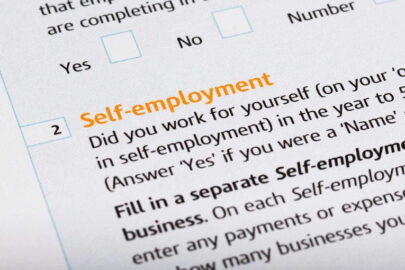Multiple job holders face substantial barriers to saving, leading to a private pension pot just 6.1% of the average across the country, according to research commissioned by pension provider, NOW: Pensions.
This research by the Pensions Policy Institute (PPI) will be published in December and shows that multiple job holders earn 39% less than the UK average population. This means average earnings of £16,750 in comparison to the UK average of £27,380 which impacts pension saving. Even when state pension and other benefits are taken in account multiple job holders still have 46% less than the baseline population’s pension income, just £210 a week compared to £390 a week.
These low levels of earnings mean many people with multiple jobs are excluded from Automatic Enrolment (AE). AE is only triggered once a worker earns over £10,000 a year in a single job. Even those that are earning more than the £10,000 threshold in a job and are enrolled still miss out on potentially significant contributions from each of their employments due to the Lower Earnings Limit. The lower limit is set at £6,240 meaning that only earnings over that amount are pensionable. Instead of saving 8% into a pension, those earning £10,000 are only contributing 3.8% of that total figure.
Five million people in the UK are self-employed, contributing an estimated £305 billion to the UK economy. The majority of the self-employed are men. Among those who have been self-employed for two years, 65% are male, of those who have been self-employed for 20 years, 71% are male.
The report by PPI reveals that 85% of the self-employed do not save into a private pension and this figure has grown from 73% in 2008/09. The remaining 15% of the self-employed who do manage to save into a pension have 77% of the pension wealth of the average population.
The reports said this is partly because lower than average incomes and the need for financial liquidity can make it difficult to save consistently. However, it is also down to attitudinal and other barriers as, even amongst the highest paid self-employed workers, pension participation rates are still at just 19%.
The self-employed group is excluded from accessing the benefits of AE because they do not have an employer who must automatically enrol them and provide contributions. The report identifies that after being self-employed for 20 years pension savings really begin to suffer with retirement incomes dropping to 53% of the UK average. This drops further for those who have been self-employed for longer.
The self-employed and multiple job holders are the groups most likely to sound alarm bells around low levels of pension participation and saving. This is going to be made worse by the continuing economic downturn resulting from the Covid-19 crisis.
The report also found that neither the level of income nor the closer you are to retirement have a material impact on the likelihood of being member of a pension scheme if you are from either of these groups. Less than a quarter (23%) of self-employed 60-64-year olds are members of a pension scheme – which is defined as a scheme from a previous employer or a personal pension.
Average annual full-time earnings for the self-employed is £19,560, almost a third (29%) less than the baseline population (£27,380). However, this does increase the longer someone is self-employed.
The average total income for those who have multiple jobs that each pay less than £10,000 is £16,750 – 39% less than the baseline population. This has a significant impact on a person’s ability to save for the future.
Joanne Segars, chair of trustees at NOW: Pensions, said: “Auto enrolment has proved to be a huge success in getting vast numbers of working people in the UK saving for their later life, with just over 10 million now enrolled. However, there is an additional five million self-employed workers who are locked out of workplace savings and given no support, or incentive, to start saving for their retirement.
“NOW: Pensions is calling on the government to make significant policy changes to improve the later life outcomes for the self-employed and multiple job holders, especially as the Coronavirus pandemic is set to vastly increase the number of people working multiple part-time jobs. One key policy change would be to scrap the £10,000 AE trigger. If auto enrolment were to start from £1 of earnings and include cumulative income from multiple jobs this would allow 106,000 people to benefit and increase pension wealth by 175%.”
Andy Chamberlain, director of policy at IPSE (the Association of Independent Professionals and the Self-Employed), added: “This research is both very valuable and very concerning, chiming with our own past findings about the lack of pension saving among the self-employed. The reality is that the fluctuating incomes of the self-employed (particularly amid the financial turmoil of the pandemic) mean that rigid pension schemes such as the auto-enrolment programme simply do not work for them.
“The self-employed need flexible pension plans that allow them to draw down on their savings when they need them. For both the self-employed and workers holding multiple part-time jobs – and anyone else whose style of work is not suited to rigid pension plans – it’s important that more flexible, accessible savings options are made available.”
